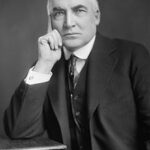The Historic Birmingham Address
President Warren G. Harding delivered his most significant civil rights speech in Birmingham, Alabama on October 26, 1921. ⚖️ This marked the first time since Reconstruction that a president directly addressed racial violence in the South. Harding spoke to a segregated audience of 100,000 people, boldly condemning lynching and mob violence. His words challenged the prevailing racial attitudes of the era.
Presidential Moral Leadership
Harding’s advocacy extended beyond speeches to concrete policy positions. He supported federal anti-lynching legislation, specifically the Dyer Anti-Lynching Bill. 📊 Statistics showed lynching had claimed over 3,000 lives since 1889, making presidential intervention crucial. Harding appointed African Americans to federal positions, including recorder of deeds in Washington D.C. His administration also increased funding for historically black colleges and universities.
Breaking Political Silence
Previous presidents had largely ignored racial violence and civil rights issues. Harding challenged this tradition by making civil rights a federal concern. ⚠️ His bold stance risked alienating Southern Democratic voters and conservative Republicans. The president argued that America could not claim moral leadership globally while tolerating domestic racial violence.
Impact:
Transforming National Discourse
Harding’s civil rights advocacy fundamentally shifted presidential expectations on racial issues. 🌍 His Birmingham speech received international attention, improving America’s global reputation during the post-World War I period. Northern newspapers praised his moral courage, while Southern publications criticized his intervention. The speech established a precedent for federal involvement in civil rights that would influence future administrations. African American newspapers celebrated having a presidential ally for the first time in decades.
Legislative and Political Consequences
Despite Harding’s support, the Dyer Anti-Lynching Bill faced fierce Senate opposition and ultimately failed. 🔥 Southern Democrats and some Republicans blocked the legislation through filibuster tactics. However, Harding’s advocacy kept the issue in national headlines throughout 1922. His position encouraged other Republican leaders to support civil rights measures. The failed legislation demonstrated the deep-rooted resistance to federal civil rights intervention.
Long-term Historical Significance
Historians credit Harding with reviving executive branch civil rights leadership after decades of presidential silence. 📈 His advocacy influenced later presidents, particularly Harry Truman’s civil rights initiatives in the 1940s. While immediate legislative success was limited, Harding’s moral leadership established important precedents. Modern scholars view his civil rights stance as his administration’s most enduring positive legacy, overshadowing other controversial policies.
